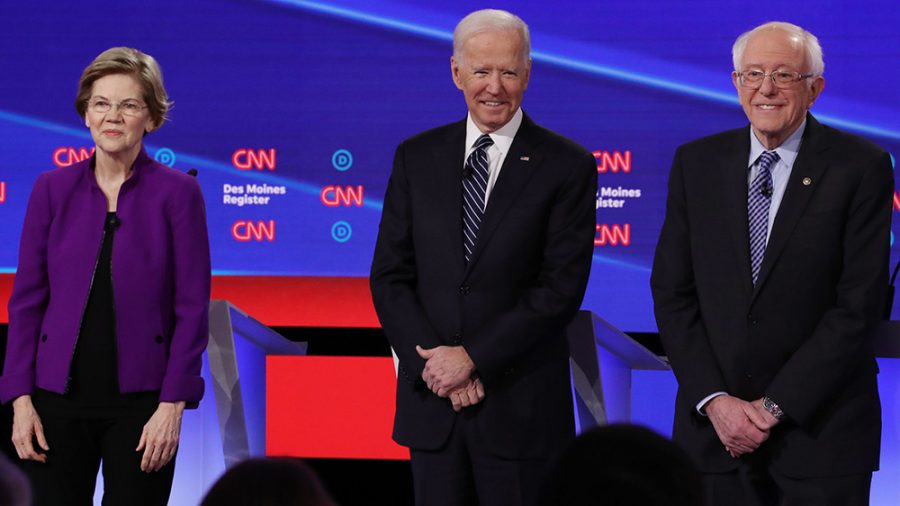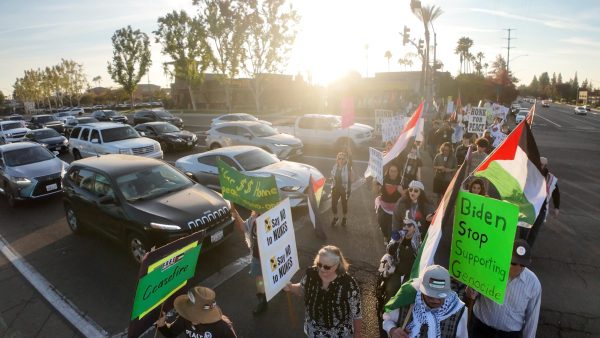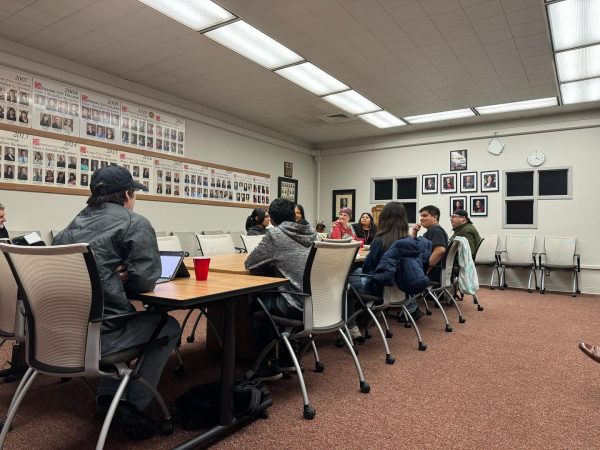Voter’s Guide to the Presidential Election
Impeachment, the 2020 Democratic Primary and Tensions With Iran
In the first 29 days of 2020, a number of events have occurred that will affect the outcome of November’s presidential election, and the future of our nation.
While politics are known to be full of mud-slinging slander and chaotic jumble, the trials and triumphs of the three years of the current presidency have motivated supporters to stand stronger in their convictions and inspired the opposition to rally.
The 45th and current president of the United States, Donald J. Trump, was impeached by the majority Democratic House of Representatives on Dec. 19, 2019.
From as early as Feb. 3 in Iowa to as late as June 2 in states such as Montana and South Dakota, Americans will cast votes to nominate a presidential candidate for the November general election ballot.
Californians will vote in their March 3 primary as part of Super Tuesday, so named for being the day when the greatest number of states hold primary elections.
President Trump is the incumbent on the ballot, representing the Republican party.
Former Vice President Joe Biden is leading the Democratic polls, beating Sen. Bernie Sanders by 3% and Sen. Elizabeth Warren by 11%, according to national polling data posted by the New York Times on Jan. 24.
In a poll for the early-voting caucus state Iowa, Sanders is edging out Biden by 0.6% with 22.7% to 21.1% respectively, according to a poll from FiveThirtyEight.
The results of this poll bring into the running another moderate candidate, Pete Buttigieg, who leads Warren by 3%.
With the Primary Elections in California less than two months away, President Trump’s opposing party still contains a larger than usual amount of candidates in the race.
And as Trump continues to make moves solidifying his legacy, the nation remains divided.
Politico reporter Matthew Choi explained that in a poll conducted by CNN, “Fifty-one percent of respondents to the poll want the Senate to convict Trump on the impeachment charges brought by the House, which would lead to his immediate expulsion from office. Meanwhile, 45 percent of respondents said they don’t want to see the president removed.”
The Trump presidency was born into conflict—his inauguration on Jan. 20, 2017 was immediately followed by the Women’s March, an international protest.
“Once Donald Trump was inaugurated—you may remember what happened the very next day, biggest protest rally in the history of the world,” said Elizabeth Warren in a Jan. 28 interview with PBS NewsHour. “Women turned out and said ‘I’m going to get deeper into politics.’”
Rhetoric from Warren’s fellow Democratic candidates sustains the ideology that she suggests.
“We are here because the American Dream and our American democracy are under attack and on the line like never before,” said former Democratic presidential candidate Kamala Harris in her campaign announcement speech in January 2019.
Harris was one of the first Democratic candidates to announce her campaign. “The United States of America is not about us versus them … I’m running to be a president of the people, by the people, for all the people,” she said in her announcement.
“The forces of change in our country today are tectonic. Forces that help to explain what made this current presidency even possible,” said current Democratic presidential candidate Pete Buttigieg in his campaign announcement in April 2019, “That’s why, this time, it’s not just about winning an election—it’s about winning an era.”
Trump remains consistent that he is running his 2016 campaign again.
Fifteen days after Donald J. Trump was impeached, he ordered a drone strike that killed Iranian commander, Maj. Gen. Qassem Soleimani.
Five days later, Iran responded with a missile strike on Iraqi bases that hosted U.S. troops.
The assassination and the retaliatory strikes are only the latest developments in a long history of conflict between the United States and Iran, and many feared this could be the tipping point into fullscale war.
Multiple polls suggest that nearly half of Americans support the president and his agenda. They’re angry that others can’t see all of the great things that Trump is doing for the country.
The rest of the country is angry because they can’t understand how people can support a leader with a questionable reputation.
Trump’s first term is ending, and the country is somehow even more divided. Each trial and triumph through this term—may it be his first or his last—will influence the vote. Each decision painting a clearer picture of the Commander in Chief. Each response painting a clearer picture of the opposition.
Now this illustration hangs above the ballot, encouraging some, discouraging others. Regardless, affecting the outcome of the election that will choose the nation’s leader.
President Trump is still on trial in the Senate for his impeachment charges.
There is tension with Iran because President Trump killed a commander.
The Democratic Party has an influx of candidates, all calling for change.
This election has become more than a vote for president. With all of the information and events that have transpired in the first month of a new year, voters have a lot to consider.
Ultimately, the election sits in the lap of the American public.

Hannah Lanier is the 20 year old New Editor and reporter for the Rampage at Fresno City College. Born and raised in Fresno, California, Lanier is the youngest...










